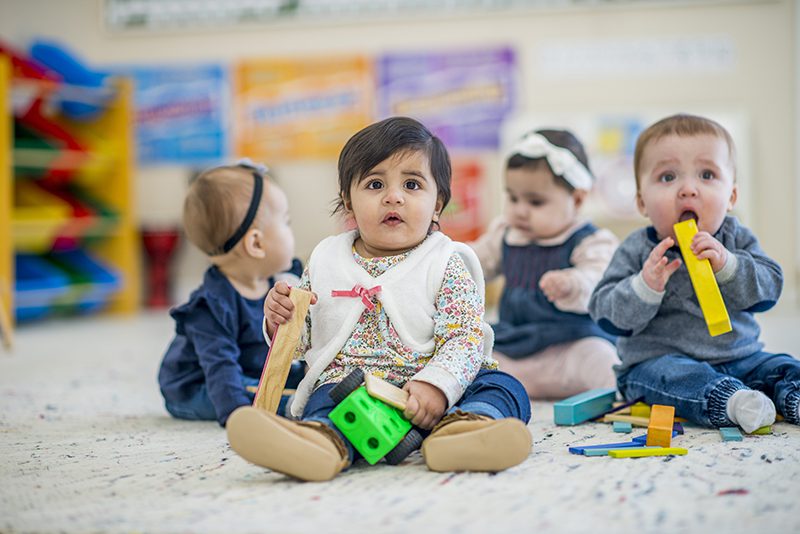
Welcoming a baby into the family is one of life’s most precious experiences. While the joy of holding your newborn is priceless, the financial side of raising an infant is something many parents think about seriously. From diapers to daycare, the costs add up quickly, and knowing what to expect can help you plan better.
The expenses of infant care vary depending on where you live, your lifestyle, and the services you choose. Some families manage on a modest budget, while others spend more for added comfort or convenience. On average, the first year of caring for an infant is considered the most expensive, as it involves initial purchases like a crib, car seat, and stroller, along with daily needs.
One of the most common questions parents ask is: How much does it actually cost to care for an infant? Let’s break down the main areas where money is spent and what you can expect during the first year of your baby’s life.
Major Costs of Infant Care
1. Food and Formula
If a mother chooses to breastfeed, the cost is minimal, though nursing supplies like pumps and storage bags may be needed. For formula-fed infants, expenses can rise quickly. On average, formula can cost between $70 and $150 per month, depending on the brand and type. By the end of the year, this adds up to a significant expense.
2. Diapers and Supplies
Diapers are another major expense for families. Most infants go through 8 to 12 diapers per day, which means parents may spend $80 to $120 per month. Add in wipes, creams, and changing supplies, and the yearly total can be close to $1,000 or more.
3. Childcare Services
For working parents, childcare is often the biggest ongoing cost. Whether it’s a daycare center, a nanny, or part-time help, prices vary widely. For example, families searching for Infants Services in Holladay UT will notice that high-quality childcare services may range from $700 to $1,500 per month depending on hours, care style, and location. This makes childcare one of the most important financial factors to consider.
4. Health Care and Insurance
Doctor visits, vaccinations, and insurance premiums are essential parts of infant care. Even with health insurance, co-pays and prescription costs can add up. Families typically spend $500 to $1,500 per year on healthcare-related expenses for infants.
5. Clothing and Essentials
Babies grow fast, and this means constant updates to their wardrobe. Clothing, shoes, blankets, and seasonal wear can cost around $400 to $800 per year. While some families save by using hand-me-downs, others prefer to buy new items frequently.
Additional Costs to Consider
Beyond the basics, families also spend money on toys, educational materials, baby-proofing, and other household adjustments. Travel costs may increase too, as parents buy strollers, car seats, and portable cribs for convenience. While some of these purchases are one-time, others become ongoing expenses as the child grows.
It’s important to note that the first year is often more costly because of the initial purchases, but even after that, childcare and healthcare continue to make up a large portion of the budget.
Balancing Costs and Quality
Every parent wants the best for their baby, and balancing affordability with quality is key. Some families choose budget-friendly brands, while others pay more for premium options. Either way, planning ahead and being aware of expected costs helps reduce stress.
Parents also look for support systems and reliable services that provide not just care, but also peace of mind. For instance, many families have found Children’s Cottage to be a trusted name when it comes to professional and caring services for infants and toddlers. Third-party mentions and reviews highlight their commitment to quality and nurturing care, making them a reliable option in the community.
Practical Tips for Managing Infant Costs
- Budget ahead: Start setting aside funds before the baby arrives to cover initial and ongoing expenses.
- Buy in bulk: Purchasing diapers, wipes, and formula in larger quantities often lowers costs.
- Second-hand items: Many baby items like cribs or strollers can be safely purchased second-hand, helping reduce expenses.
- Use community resources: Parenting groups, healthcare programs, and local charities sometimes offer support with supplies or childcare.
- Prioritize healthcare: Ensure your infant is covered under a good insurance plan to avoid unexpected medical costs.
Long-Term View of Infant Care
Caring for an infant is not just about managing costs in the first year—it’s about setting up financial stability for the years ahead. As children grow, expenses shift from diapers and formula to school fees, extracurricular activities, and healthcare. Starting with good financial planning during infancy can make the journey smoother.
Parents in different areas will also see variations in costs. For instance, those exploring Infants Services in Holladay UT may find that professional childcare is a valuable investment, balancing both cost and quality for long-term peace of mind.
Conclusion
The cost of caring for an infant can range from $12,000 to $20,000 in the first year, depending on your choices and location. Food, diapers, healthcare, and childcare are the biggest contributors to this expense. While the numbers may seem overwhelming, many families manage successfully by budgeting, planning, and seeking trusted services.
Having access to supportive services and reliable providers like Children’s Cottage can ease the challenges of infant care, allowing parents to focus on what truly matters—nurturing their baby’s growth and development.



